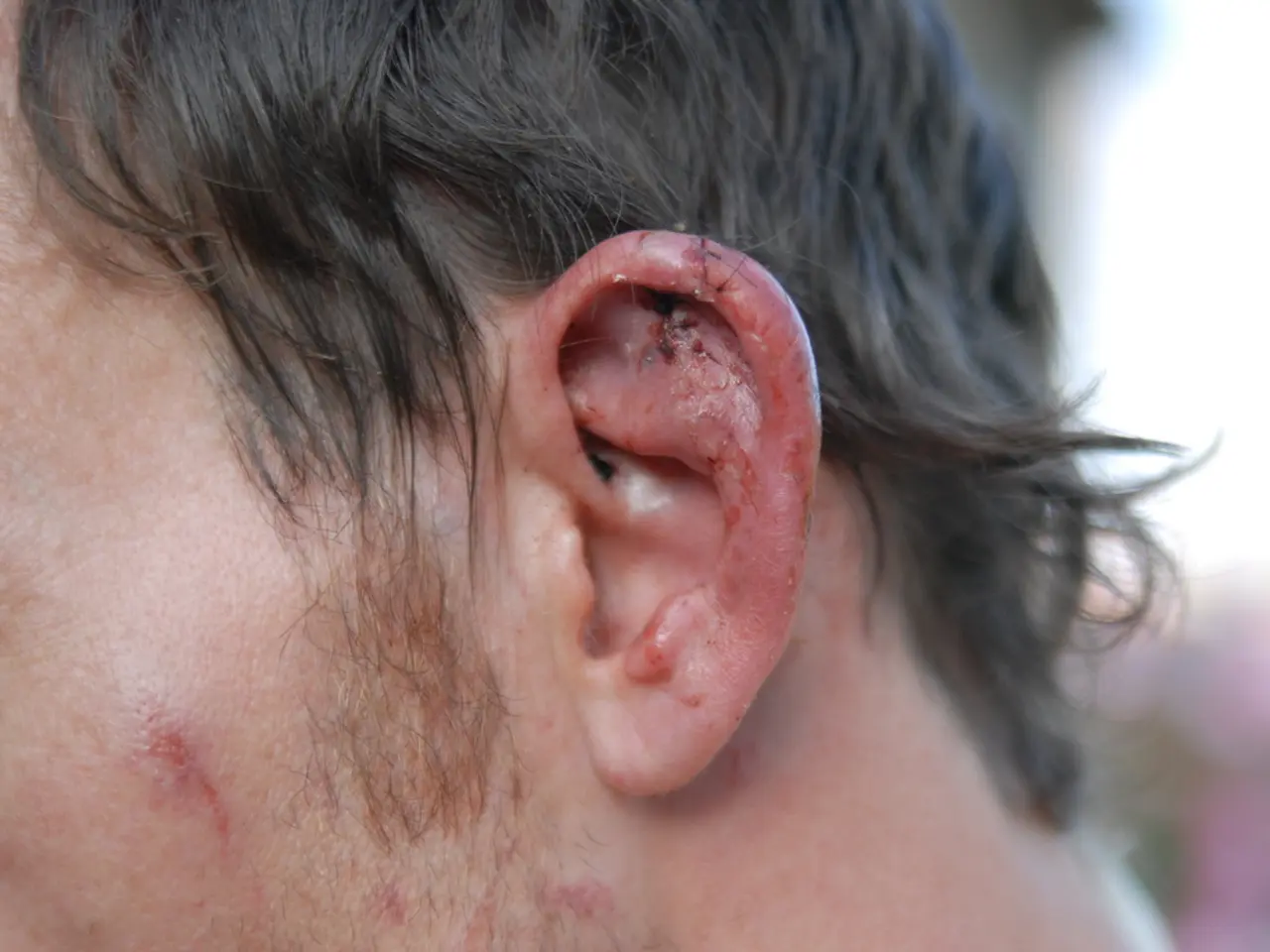Dubai Holds the 13th Emirates Conference on Hematology: Progressing Blood Disorder Therapies and Studies
The 13th Emirates Hematology Conference concluded today in Dubai, marking a significant step forward in fostering the global exchange of knowledge and expertise in the fight against blood-related conditions. Asma Sultan Al Olama, President of the Emirates Society of Haematology and chairwoman of the conference, underscored the significance of the gathering.
The conference focused on innovative treatments for blood cancers, lymphomas, and benign blood diseases. While the discussions did not delve into the use of CAR-T cell immunotherapy in further detail, the latest advancements in this field were highlighted.
Expansion beyond Traditional Targets
Anti-CD19 CAR-T therapies have been highly successful for B-cell malignancies such as acute lymphoblastic leukemia and large B-cell lymphoma. New clinical data support their use beyond cancer, such as in treating autoimmune diseases like systemic lupus erythematosus, indicating a growing role for CAR-T in benign blood and immune diseases.
Technological and Design Improvements
Research presented at the conference showcased several technological and design improvements for CAR-T cells. Dual-target CAR-T cells that recognize two tumor antigens reduce the risk of antigen escape, enhancing treatment durability. Inducible CARs (iCARs) and SynNotch CARs bring more precise control to CAR-T activation, improving safety by limiting off-tumor effects. Engineering CAR-T cells with chemokine receptors improves their trafficking to target tissues, potentially increasing efficacy. Antibody-secreting CAR-T cells can recruit endogenous immunity and provide broader antitumor responses.
Innovative Delivery Approaches
A groundbreaking delivery approach presented at the conference involved in situ generation of CAR-T cells using mRNA technology similar to COVID-19 vaccines. This approach enables repeated dosing, avoids preconditioning to deplete native T cells, and showed significant tumor eradication in mice with B cell lymphoma—potentially making treatment safer, faster, and more affordable.
Advancements in Multiple Myeloma Treatment
Several CAR-T agents such as cilta-cel, anito-cel, and arlo-cel have demonstrated promising efficacy with durable responses and improved survival in clinical trials for multiple myeloma.
Integration of AI and Structural Biology
Scientists are optimizing CAR design by combining novel CAR architectures with AI to improve target binding and efficacy, especially in pediatric cancers. For example, adjusting the length and flexibility of linkers between binding domains on CARs enhances interaction with cancer cells and reduces immune escape.
The Emirates Hematology Conference provided valuable insights into the advancement of hematology, emphasizing the need for enhanced public awareness to better address the complexities of blood diseases. The event served as a platform for hematologists, oncologists, and healthcare professionals to collaborate and explore cutting-edge solutions aimed at improving patient outcomes. The conference aimed to address the latest breakthroughs in the diagnosis and treatment of blood disorders and stressed the importance of addressing the complexities of blood diseases in the future. The three-day conference highlighted emerging treatments in the field of hematology, featuring more than 60 scientific abstracts. While the conference did not specify the exact number of countries represented by the over 500 physicians and specialists in attendance, it was a significant step forward in fostering the global exchange of knowledge and expertise in the fight against blood-related conditions.
- The conference's focus extended beyond blood cancers, with discussions suggesting a growing role for CAR-T therapy in treating autoimmune diseases like systemic lupus erythematosus, indicating a broader application in the realm of health and wellness.
- The future of medical-conditions treatment may hold promise with advancements in CAR-T cell technology, such as dual-target CAR-T cells, iCARs, SynNotch CARs, chemokine receptor-engineered CAR-T cells, and antibody-secreting CAR-T cells, all aimed at enhancing efficacy and safety.
- Fitness and exercise may also benefit from scientific breakthroughs, as a groundbreaking delivery approach using mRNA technology for CAR-T cell generation, similar to COVID-19 vaccines, promises safer, faster, and more affordable treatments for blood cancers.
- Mental health could potentially reap benefits from CAR-T therapy as well, given that scientists are optimizing CAR design by incorporating AI to improve target binding and efficacy, especially in pediatric cancers.
- Nutrition may influence CAR-T cell health and response, as no specific mention was made regarding strategies for optimizing the diet of patients undergoing CAR-T cell therapies.
- The conference underscored the importance of ongoing collaboration and research in the fields of science, education, and healthcare, to continue making strides in the fight against diseases like cancer and blood disorders, contributing to a brighter, healthier future for all.




